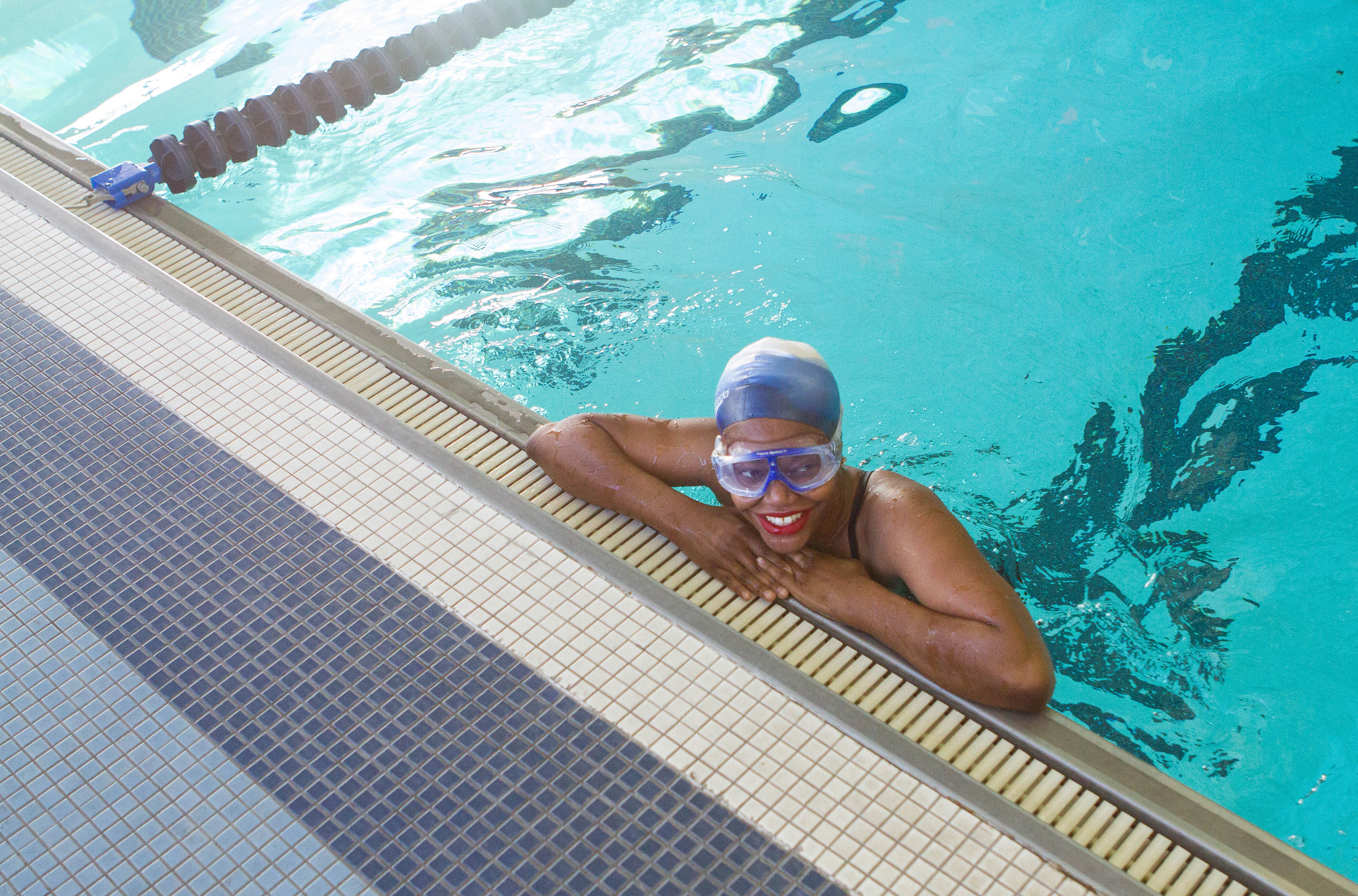The starting line of the Ironman is iconic. Hundreds of swim-capped triathletes line a shore. Anticipation builds until finally-"Bang!" The gun goes off and thousands of swimmers scramble over one another until they are deep enough in the water to begin the shortest, yet particularly grueling, segment of the race.
The swim portion of the Ironman is the gateway to ultimate triathlon victory, and it's only 2.4 miles. Come September 28, thousands of triathletes will be taking to the Tennessee River starting behind the Kenco building on Riverfront Parkway all the way to Ross's Landing. At first glance it seems like nothing compared to the 112 miles of cycling or the 26.2 miles of running.
But more than one of our Ironman 5 have discovered a surprisingly difficult element of their training journey this month: the river. In a nutshell: swimming is not as easy as it looks. When asked what makes a good swimmer, Dana MacCorquodale says it takes growing up in the sport. She did just that by joining her local swim team at the fresh age of 6. "Most kids learn to make their way through the water but they never learn the stroke mechanics," says Dana. "It's all about the stroke. The technique has to be there for the speed to be there."
For many Ironman hopefuls who are new to the water, however, traveling back in time is just not an option. Alexis Willis is one of those. She recently dove in to the YMCA pool to relearn a swim stroke. After her first lesson, she climbed out of the pool, dripping wet and frustrated to the point of tears. "I felt like I'm not going to be able to finish Ironman if I don't get this," she says. "With all that anxiety, I would just literally sink."
"You can't win those Ironman races by doing well in the swimming, but you can lose them by doing it poorly," notes local open water swimmer Hallie McFadden. Hallie is head coach of the YMCA Chattanooga Masters Swim Club at the downtown Y. Like Dana, Hallie also got her start as a swimmer at a young age, becoming an All-American swimmer while in high school at Girls Preparatory School.
The first time Hallie swam in open water was in the Atlantic Ocean while she was in the Navy. "I was living in Spain at the time," she recalls, explaining that she raced a triathlon as a part of a team-Hallie, of course, completed the swim portion of the race. She took a hiatus from swimming for years but fell back in love with the sport in 2010. That's when she joined the C.O.W.S.-Chattanooga Open Water Swimmers-on a weekly basis to swim in the Tennessee River.
"The Tennessee River was such a delightful change to swimming in the pool. I just got addicted to it," says Hallie. She's not the only swimmer who gets bored with swimming back and forth in a pool. Dana recently completed a 10-mile pool swim event for charity at the downtown Y, and she says the repeated flip turns became dizzying. "When you swim in open water you can open up your stroke," Dana says. "I feel like I'm flying."
But there are drawbacks to open water swimming. "Part of the challenge is the uncertainty," explains Hallie. "We don't know what the temperature is going to be or what the weather is going to be. Cold, stormy, windy? There are all those natural things you can't control. The other thing is the current. If we have a rainy summer like we did last summer, the current could be screaming. It's not safe for inexperienced swimmers."
Dana says the main thing is to get comfortable in the water. It's something Alexis says she is working on. "I'm looking forward to conquering my fears of open water.
There's something about not being able to see through to the bottom that frightens me," she says, and adds, laughing, "That and the catfish." Though according to Hallie, Alexis need not fear the creatures. "In four years of swimming in that river on a weekly and even daily basis, I've never touched a fish," she says.
Yet another reason why being at home in the water is ultra-important: fellow Ironman swimmers aren't exactly polite during the race. "I've had swimmers say they've been dunked, hit," Hallie warns. "It's not just polite drafting; it's brutal." Just YouTube the Ironman starting line to see what she means; it looks like the mass exodus into the Red Sea.
Hallie says swimmers need to be at the point that they are OK with being dunked. One way to avoid the rush, she adds, is to stay on the outskirts or even toward the back of the swimming group as the fierce swimmers will likely be toward the front.
In short, new swimmers have a lot to learn before race day in September. Luckily, they have the entire summer to dive into the pool or the river to test their mettle. "In the learning process I can't be caught up in any shame or being embarrassed," says Alexis. She's been working on her stroke for weeks and is happy with the results. "Each class I've gotten a lot better. During my last class I had a breakthrough and swam the whole length using the correct technique."
Here's the catch: Alexis knows that as she climbs out of the water and onto Ross's Landing after that 2.4-mile swim on race day, the real test is only just beginning.

